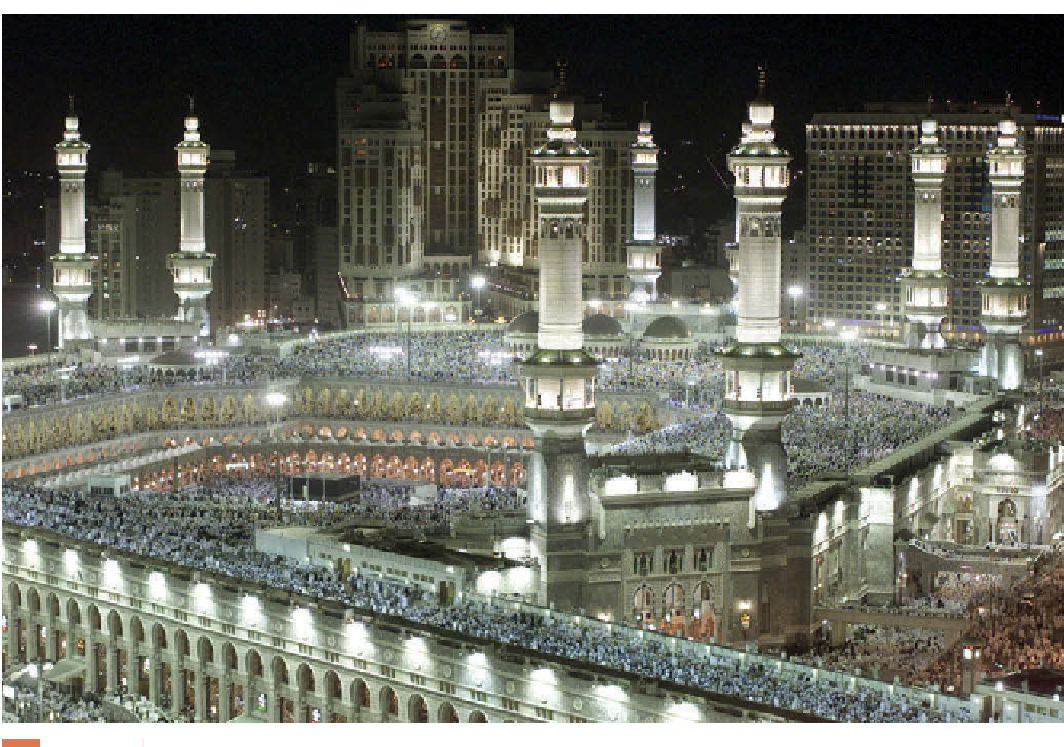Geography Reference
In-Depth Information
Figure 7.33
Mecca, Saudi Arabia.
Pilgrims circle the holy Kaaba in the Grand Mosque in Mecca during
the hajj.
© Amel Emric/AP/Wide World Photos.
religion. Some of the most destructive confl icts have pitted
Christian against Christian and Muslim against Muslim.
Religious confl icts usually involve more than dif-
ferences in spiritual practices and beliefs. Religion often
functions as a symbol of a wider set of cultural and politi-
cal differences. The “religious” confl ict in Northern
Ireland is not just about different views of Christianity,
and the confl ict between Hindus and Muslims in India
has a strong political as well as religious dimension.
Nevertheless, in these and other cases religion serves as
the principal symbol around which confl ict is organized.
Choose a pilgrimage site, such as Mecca, Vatican City, or the
Western Wall, and describe how the act of pilgrimage (in
some cases by millions) alters this place's cultural landscape
and environment.
WHAT ROLE DOES RELIGION PLAY
IN POLITICAL CONFLICTS?
Religious beliefs and histories can bitterly divide peo-
ples who speak the same language, have the same ethnic
background, and make their living in similar ways. Such
divisions arise not only between people adhering to differ-
ent major religions (as with Muslims and Christians in the
former Yugoslavia) but also among adherents of the same
Confl icts along Religious Borders
A comparison between Figure 7.6 and a political map of
the world (see Fig. 8.3) reveals that some countries lie
entirely within the realms of individual world religions,
whereas other countries straddle
interfaith boundaries
,
the boundaries between the world's major faiths. Many
countries that lie astride interfaith boundaries are subject
to potentially divisive cultural forces—particularly when













































